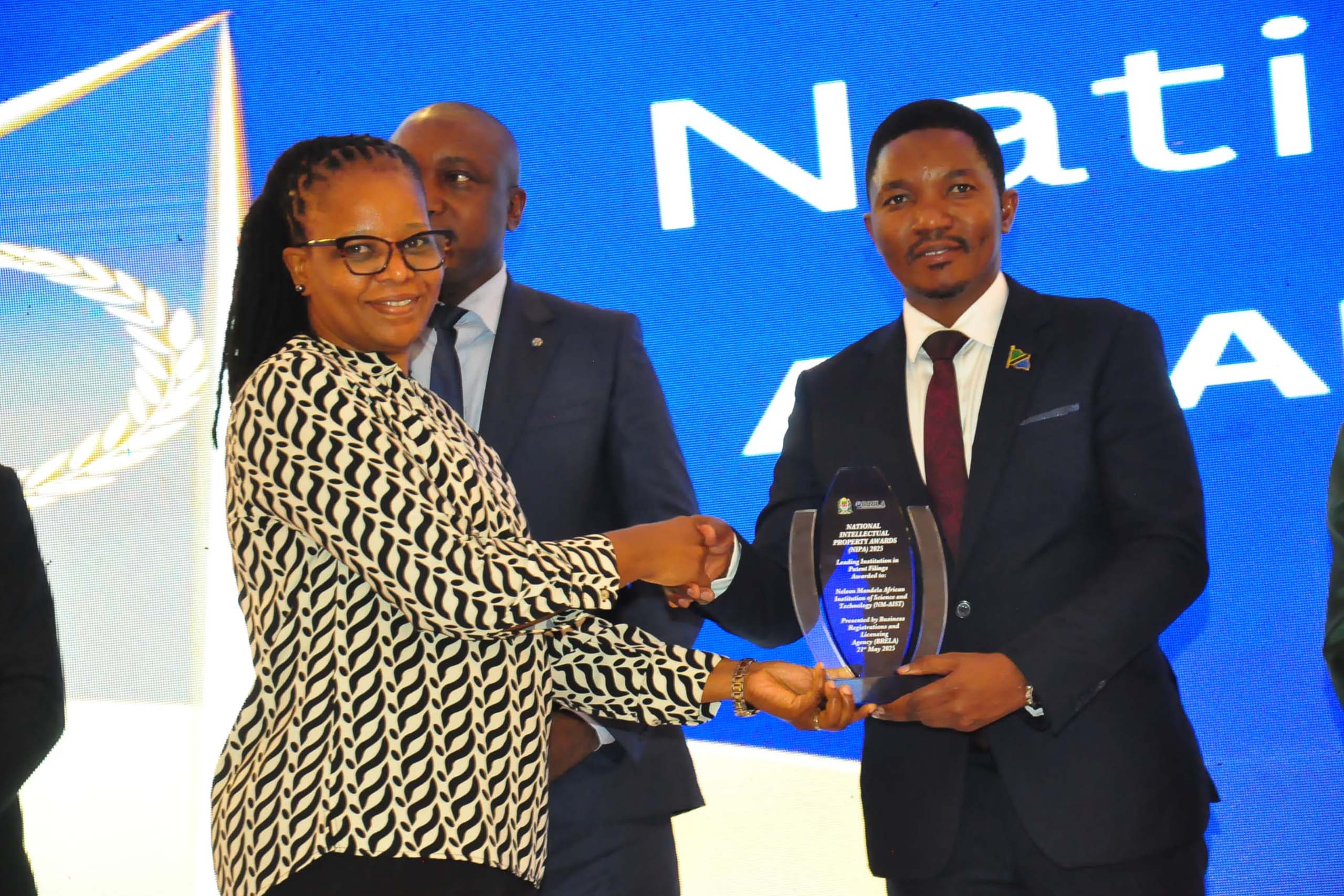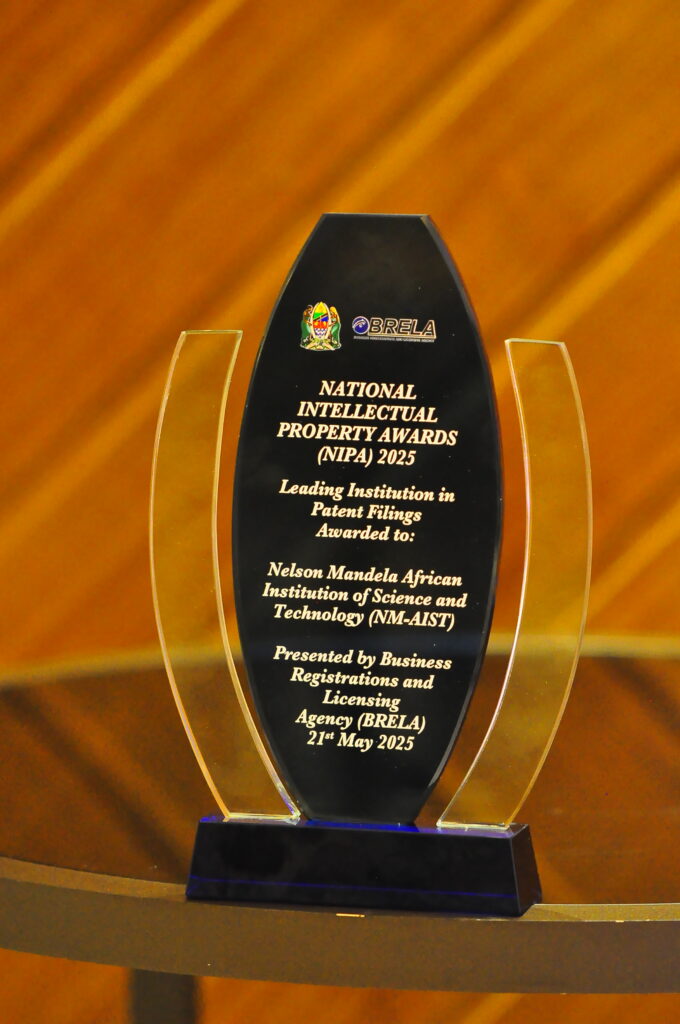
The Nelson Mandela African Institution of Science and Technology (NM-AIST) has received high recognition after being awarded for leading Institution in Patent Filings, presented by the Business Registration and Licensing Agency (BRELA) during the 2025 World Intellectual Property Day celebrations held on May 21, 2025, at Johari Rotana Hotel in Dar es Salaam, Tanzania.
This year’s celebrations carried the theme: “Protecting and Proper Use of Intellectual Property for Socio-Economic Development”, emphasizing the importance of safeguarding innovations and utilizing them as a tool for sustainable community development.
Presenting the award, the Minister of Industry and Trade, Dr. Selemani Jafo, congratulated NM-AIST for leading in the protection of innovations and research outputs generated by the institution. He emphasized that copyright registration is a crucial pillar in promoting local industries and stimulating the creative economy.

Receiving the award on behalf of the Vice Chancellor, Prof. Maulilio Kipanyula, the Head of Quality Assurance Unit, Prof. Athanasia Matemu, remarked that the recognition is the result of extensive efforts made by researchers, students, and staff at NM-AIST to ensure that research is not left on paper but is protected and made available for societal benefit.
“So far, NM-AIST has registered 22 copyrights, making it the leading higher education institution in innovation registration,” said Prof. Matemu.
NM-AIST continues to take a leading role in promoting practical innovation and entrepreneurship through collaboration with the private sector, government agencies, and international organizations. The institution has developed solutions for various challenges in agriculture, health, environment, and industrial sectors.
Beyond research, NM-AIST places strong emphasis on the use of technology as a driver of Africa’s development through its master’s, PhD, and continuous professional training programs. The institution is committed to nurturing experts and innovators who not only advance academic knowledge but also offer real-world solutions to societal and industrial challenges.






 Visit Today : 68
Visit Today : 68 Visit Yesterday : 1941
Visit Yesterday : 1941 This Month : 3785
This Month : 3785 This Year : 123274
This Year : 123274 Total Visit : 810540
Total Visit : 810540